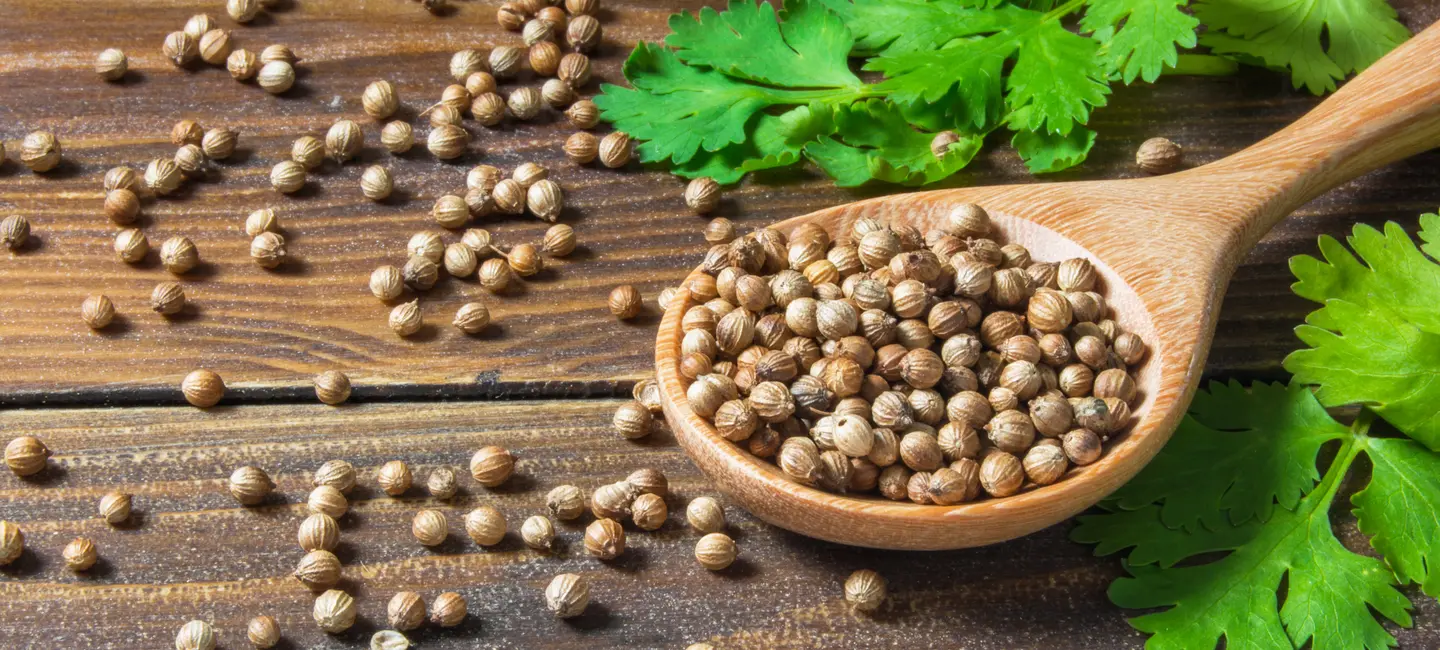
Coriander (Coriandrum sativum) is a plant in the Apiaceae family. Its fruit (seeds) are typically called "coriander" while its leaves are called cilantro.
Coriander is a source of vitamin C, calcium, magnesium, potassium, and iron. Coriander essential oil might have antibacterial effects. Coriander also contains chemicals that might lower blood pressure by causing blood vessels to dilate and work like a "water pill" (diuretic).
People use coriander for anxiety, constipation, diabetes, indigestion, parasite infections, irritable bowel syndrome (IBS), skin irritation, and many other conditions, but there is no good scientific evidence to support these uses.
Don't confuse coriander with similarly named Vietnamese coriander. Also don't confuse it with cilantro, which refers to the leaves of the same plant. These are not the same.
Is It Effective?
There is interest in using coriander for a number of purposes, but there isn't enough reliable information to say whether it might be helpful.
Is it Safe?
When taken by mouth: Coriander is commonly consumed in foods. It is possibly safe when used in larger amounts as medicine. It seems to be well-tolerated, but some people might be allergic to coriander.
When applied to the skin: Coriander is possibly safe when used appropriately. Coriander oil 6% ointment has been used safely twice daily for up to 28 days. It seems to be well-tolerated. Side effects might include skin irritation and itching.
Special Precautions & Warnings:
Pregnancy and breast-feeding: There isn't enough reliable information to know if coriander is safe to use when pregnant or breast-feeding. Stay on the safe side and stick to food amounts.
Allergies. People who are allergic to mugwort, aniseed, caraway, fennel, dill, or similar plants might have allergic reactions to coriander.
Surgery: Coriander might lower blood sugar and blood pressure, and cause sleepiness. This might interfere with blood sugar and blood pressure control during surgery. It might also interfere with medications used during surgery that also cause sleepiness. Stop using coriander at least 2 weeks before a scheduled surgery.
Medications for diabetes (Antidiabetes drugs)
Interaction Rating=Moderate Be cautious with this combination.
Coriander might lower blood sugar levels. Taking coriander along with diabetes medications might cause blood sugar to drop too low. Monitor your blood sugar closely.
Medications for high blood pressure (Antihypertensive drugs)
Interaction Rating=Moderate Be cautious with this combination.
Coriander might lower blood pressure. Taking coriander along with medications that lower blood pressure might cause blood pressure to go too low. Monitor your blood pressure closely.
Medications that increase sensitivity to sunlight (Photosensitizing drugs)
Interaction Rating=Moderate Be cautious with this combination.
Some medications might make the skin more sensitive to sunlight. Coriander might also make the skin more sensitive to sunlight. Using these products together might increase the risk of sunburn, blistering, or rashes when the skin is exposed to sunlight. Be sure to wear sunblock and protective clothing when spending time in the sun.
Sedative medications (CNS depressants)
Interaction Rating=Moderate Be cautious with this combination.
Coriander might cause sleepiness and slowed breathing. Some medications, called sedatives, can also cause sleepiness and slowed breathing. Taking coriander with sedative medications might cause breathing problems and/or too much sleepiness.
Herbs and supplements that might lower blood pressure: Coriander might lower blood pressure. Taking it with other supplements that have the same effect might cause blood pressure to drop too much. Examples of supplements with this effect include andrographis, casein peptides, L-arginine, niacin, and stinging nettle.
Herbs and supplements that might lower blood sugar levels: Coriander might lower blood sugar. Taking it with other supplements with similar effects might lower blood sugar too much. Examples of supplements with this effect include aloe, bitter melon, cassia cinnamon, chromium, and prickly pear cactus.
Herbs and supplements with sedative properties: Coriander might cause sleepiness and slowed breathing. Taking it along with other supplements with similar effects might cause too much sleepiness and/or slowed breathing in some people. Examples of supplements with this effect include hops, kava, L-tryptophan, melatonin, and valerian.
There are no known interactions with foods.
Coriander is commonly consumed in foods. As medicine, there isn't enough reliable information to know what an appropriate dose of coriander might be. Keep in mind that natural products are not always necessarily safe and dosages can be important. Be sure to follow relevant directions on product labels and consult a healthcare professional before using.
Coriander Essential Oil, Coriandre, Coriandri Fructus, Coriandrum sativum, Dhanyaka, Huile Essentielle de Coriandre, Koriander, Kustumburi.
Information on this website is for informational use only and is not intended to replace professional medical advice, diagnosis, or treatment. While evidence-based, it is not guaranteed to be error-free and is not intended to meet any particular user’s needs or requirements or to cover all possible uses, safety concerns, interactions, outcomes, or adverse effects. Always check with your doctor or other medical professional before making healthcare decisions (including taking any medication) and do not delay or disregard seeking medical advice or treatment based on any information displayed on this website.
© TRC Healthcare 2024. All rights reserved. Use and/or distribution is permitted only pursuant to a valid license or other permission from TRC Healthcare.
